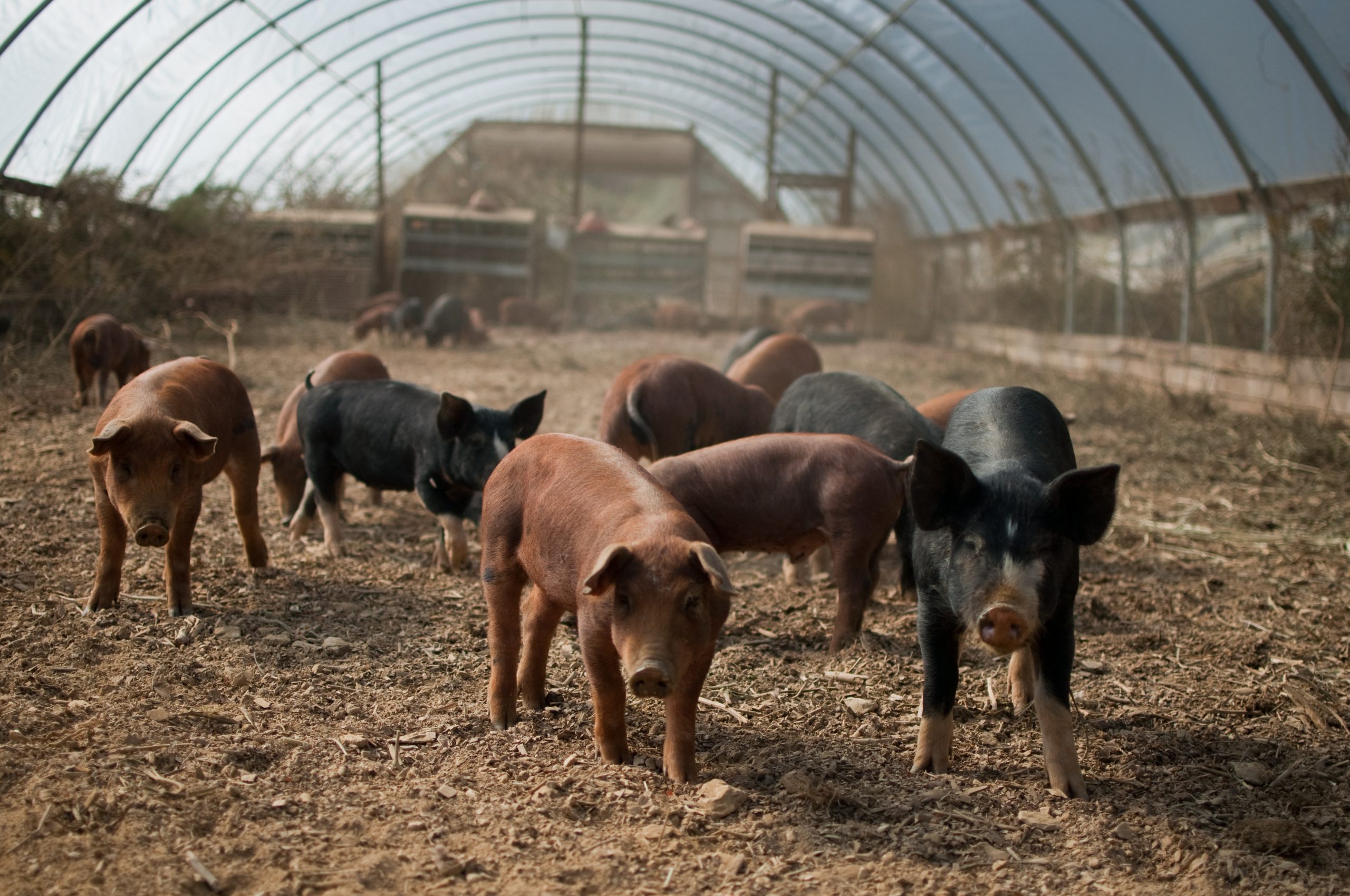
Emma Glennon co-authors study highlighting risks to human health of increased use of antimicrobials in farming.
The use of antimicrobials in food production will increasingly threaten the efficacy of life-saving antibiotic drugs.
Emma Glennon
The amount of antimicrobials given to animals destined for human consumption is expected to rise by a staggering 52% and reach 200,000 tonnes by 2030 unless policies are implemented to limit their use, according to new research co-authored by a Gates Cambridge Scholar.
Researchers, from ETH Zürich, Princeton, and the University of Cambridge, conducted the first global assessment of different intervention policies that could help limit the projected increase of antimicrobial use in food production. Their results, reported in the journal Science, represent an alarming revision from already pessimistic estimates made in 2010, pushed up mostly by recent reports of high antimicrobial use in animals in China.
In modern animal farming, large quantities of antimicrobials are used for disease prevention and for growth promotion. "Animals receive more antibiotics globally than people, both relative to their body mass and in absolute terms, although much of this use is not medically necessary. Many new strains of antibiotic-resistant infections are now common in people after originating in our livestock. These include infections resistant to "last resort" antibiotics such as colistin, which has frequently been used in pigs,” said co-author Emma Glennon [2016], a Gates Scholar and PhD student at Cambridge’s Department of Veterinary Medicine. “As global demand for meat grows and agriculture continues to transition from extensive farming and smallholdings to more intensive practices, the use of antimicrobials in food production will increasingly threaten the efficacy of these life-saving drugs. This paper evaluates strategies to reduce antimicrobial use in livestock and mitigate this growing burden."
Global policies based on a user fee and stricter regulation could help mitigate those ominous projections. “Under a user fee policy, the billions of dollars raised in revenues could be invested in the development of new antimicrobial compounds, or put towards improving farm hygiene around the world to reduce the need for antibiotics, in particular in low- and middle-income countries,” said Dr Thomas Van Boeckel from ETH Zurich, the study’s first author.
Compared to a business as usual scenario, a global regulation putting a cap of 50 mg of antimicrobials per kilogram of animal per year in OECD countries could reduce global consumption by 60% without affecting livestock-related economic development in low-income countries.
However, such a policy may be challenging to enforce in resource-limited settings. An alternative solution could be to impose a user fee of 50% of the current price on veterinary antimicrobials: this could reduce global consumption by 31% and generate yearly revenues of between US$ 1.7 and 4.6 billion.
An important limiting factor in performing this global assessment was accessing sufficient data on veterinary antimicrobial sales volumes and prices. The present study is based on publicly available data, limited to 37 countries. Representatives from the animal health industry were approach for this study but all declined to share information on antimicrobial sales or prices.
The research was funded by the programme for Adaptation to a Changing Environment, the ETH postdoctoral fellowship program and the European Research Council.
*Picture credit: Wikimedia Commons.

Emma Glennon
- Alumni
- United States
- 2016 PhD Veterinary Medicine
- Churchill College












